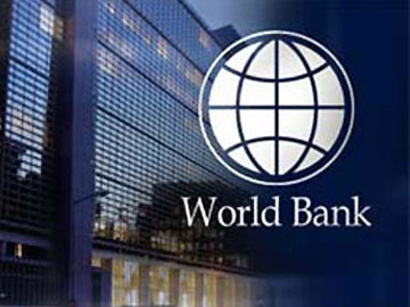World Bank, Uzbekistan discuss future cooperation priorities

By Aynur Jafarova
The World Bank's Vice President for Europe and Central Asia Laura Tuck discussed the implementation of joint projects and priorities of future cooperation with government officials of Uzbekistan on February 7-8.
Tuck's visit to Uzbekistan was focused on the WB's ongoing partnership with the Central Asian country. During the visit, Tuck held discussions with high-level government officials and visited a health project supported by the WB.
During the meetings with high-level government officials, Tuck reviewed the WB Group's current Country Partnership Strategy with Uzbekistan for 2012-2015, and noted that its implementation is largely on track, including provision of analytical and advisory services and delivery of projects.
She also discussed the WB's cooperation with the government on the long-term national development vision "Uzbekistan Vision 2030", aimed at helping the country move to upper-middle income country status. Water and energy problems in Central Asia also were among the discussed issues.
Tuck believes one of the areas for cooperation of WB with the Uzbek government is greater openness and transparency, including better access to economic data.
As part of the visit, Tuck also visited one of the primary healthcare clinics in Tashkent that participated in the WB-financed Health II Project. This project, which aimed to improve the quality and overall cost effectiveness of healthcare services in Uzbekistan, helped to deliver new medical equipment to more than 2,000 rural health clinics and provide training for almost 4,000 general health practitioners. One of the most important achievements of the project is its contribution to the introduction of per capita financing for primary healthcare.
Uzbekistan joined the WB in 1992. The WB's mission in the country is to improve people's livelihood by supporting economic reforms, contributing to the modernization of the country's social sectors and infrastructure, and sharing its knowledge and experience with the government and the people of Uzbekistan. The WB's current commitments to Uzbekistan amount to over $1 billion.
WB has allocated $12.699 million grant for Uzbekistan for the development of agriculture and to mitigate the consequences of climate change. The grant has been allocated from the Global Environment Fund.
The project will contribute towards the use of technology for renewable energy sources and energy efficient technologies relevant to agribusiness enterprises and farms. It is also intended for strengthening capacity in the reclamation of degraded irrigated lands and rational use of water resources in the Andijan, Bukhara, Jizzakh, Kashkadarya, Samarkand, Syrdarya, Tashkent and Fergana regions of the country.
Currently, intensive warming is being observed over the whole territory of Uzbekistan.
Given the acute water shortage, the forecast is for extremely warm and dry years and the water level in the basins of the Syr Darya and Amu Darya will be reduced. The activities envisaged under the new grant of the Global Environment Fund will help to mitigate risks such as water scarcity, land degradation, the growth of greenhouse gas emissions and adaptation to them.
The project components include investments for sustainable technologies ($9 million) and promotion of technologies and practices to mitigate the degradation of irrigated lands ($1.09 million) and to provide consultative services and project management services ($ 2.6 million).
Also, the WB and Uzbekistan's government signed a loan agreement, worth $40 million, as additional financing for the second phase of the project on support to the country's agricultural enterprises.
The WB board of directors approved the allocation of this loan in September 2012.
The additional loan will be allocated to Uzbekistan for 25 years with the help of funding from the International Development Agency with a five-year grace period, at an annual interest rate of 1.25 percent.
The project will help farmers to increase labor productivity, improve their financial and environmental sustainability, as well as improve the profitability of agricultural businesses.
